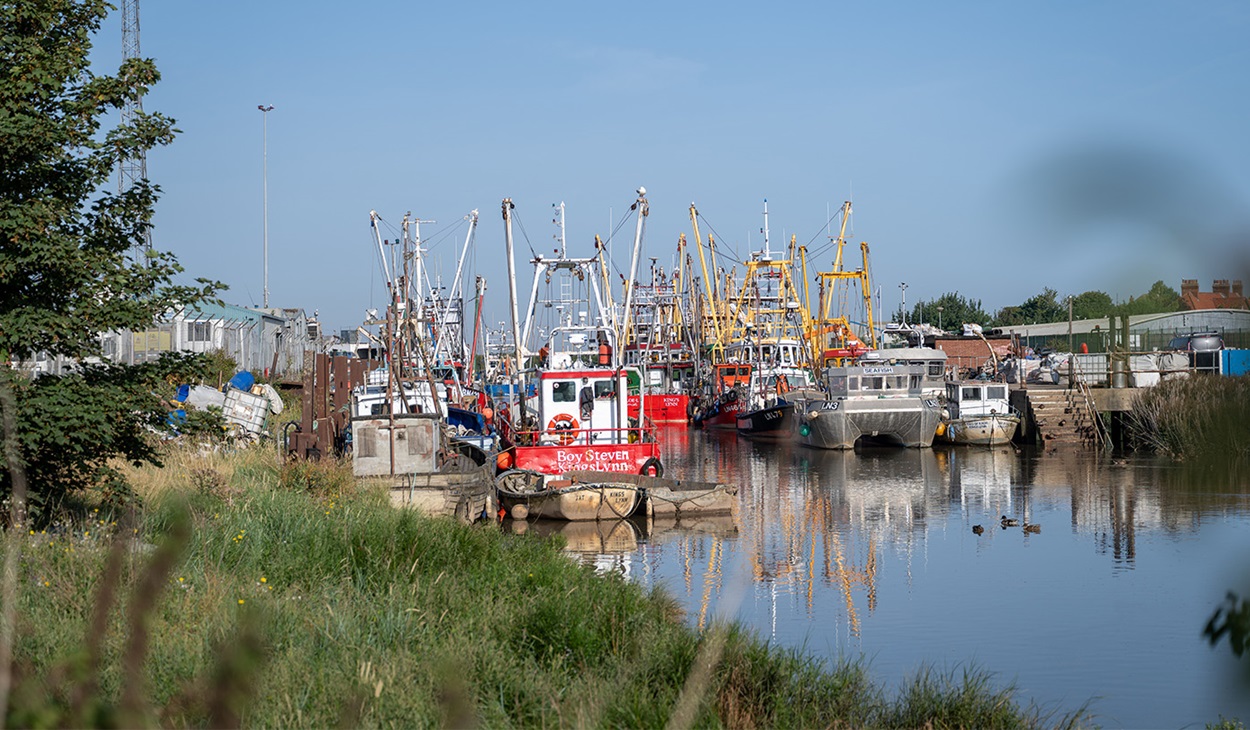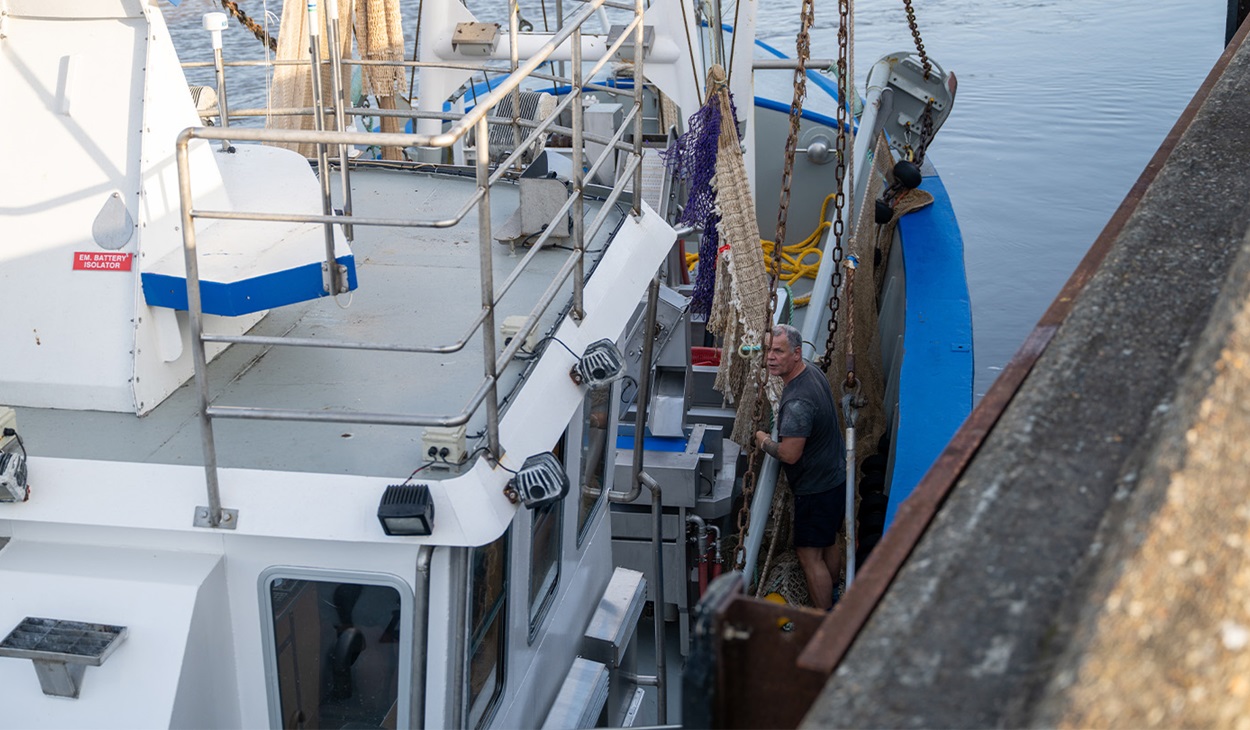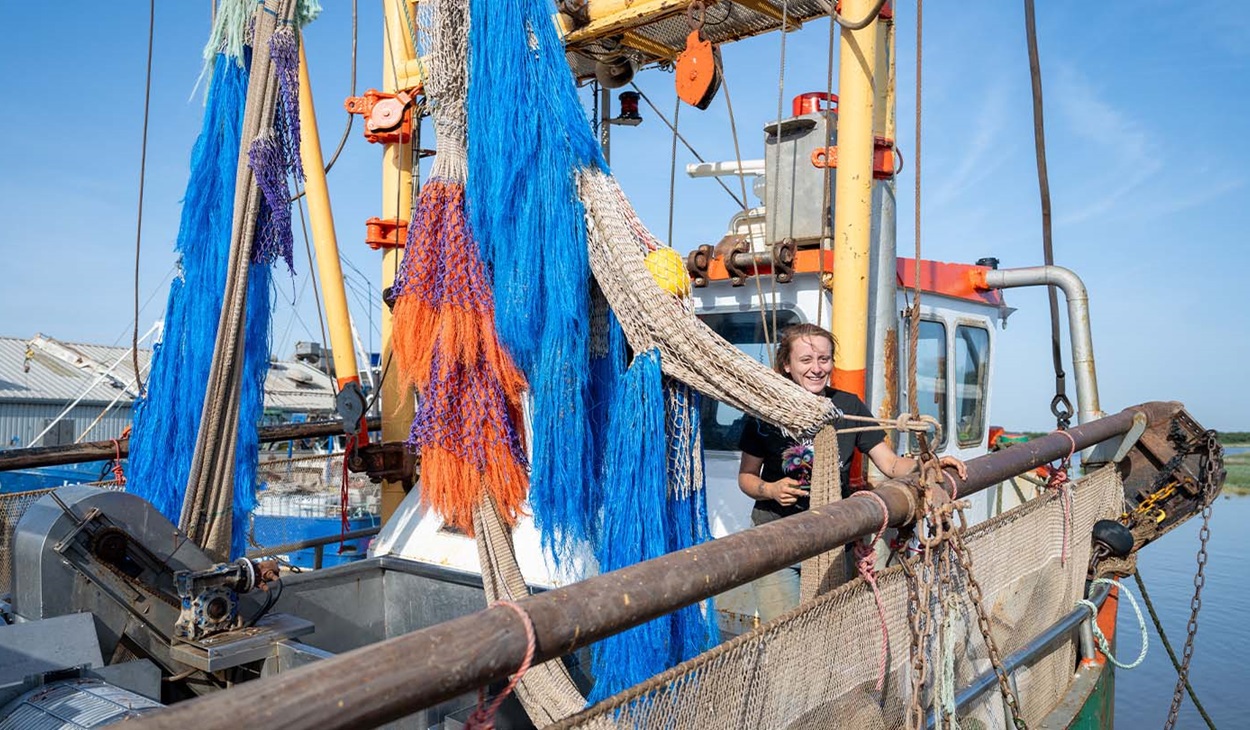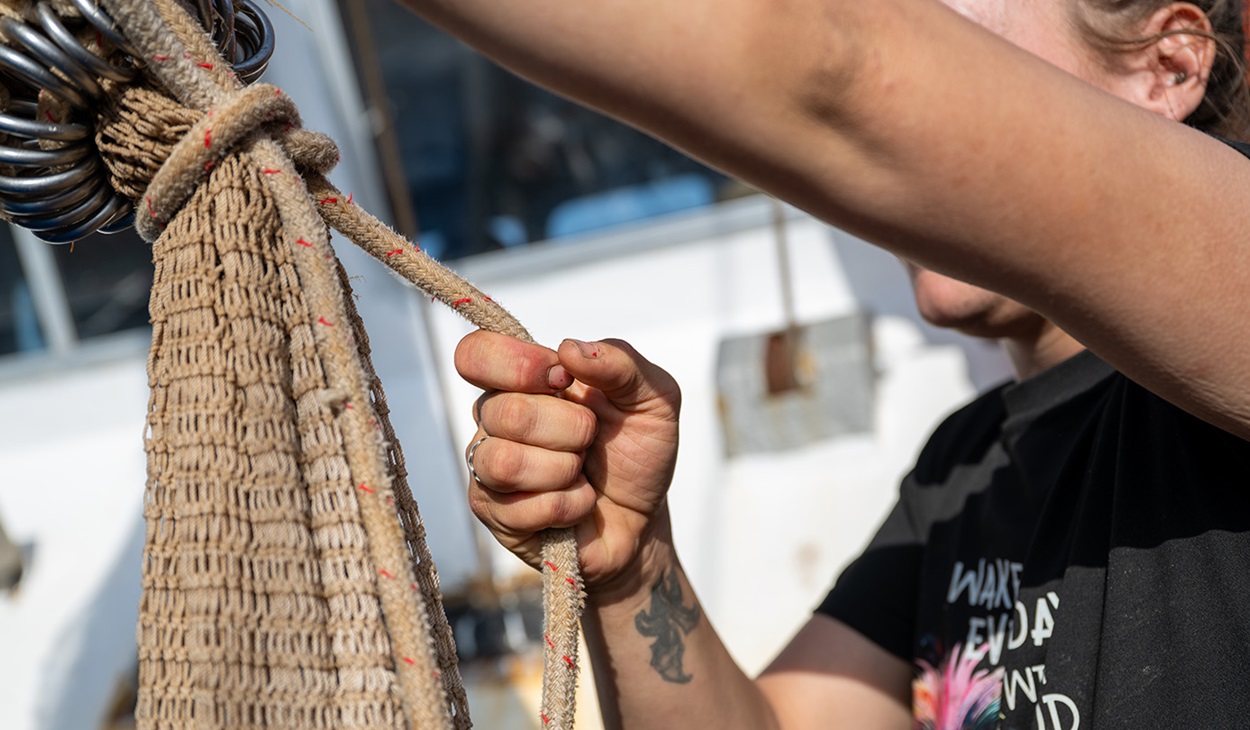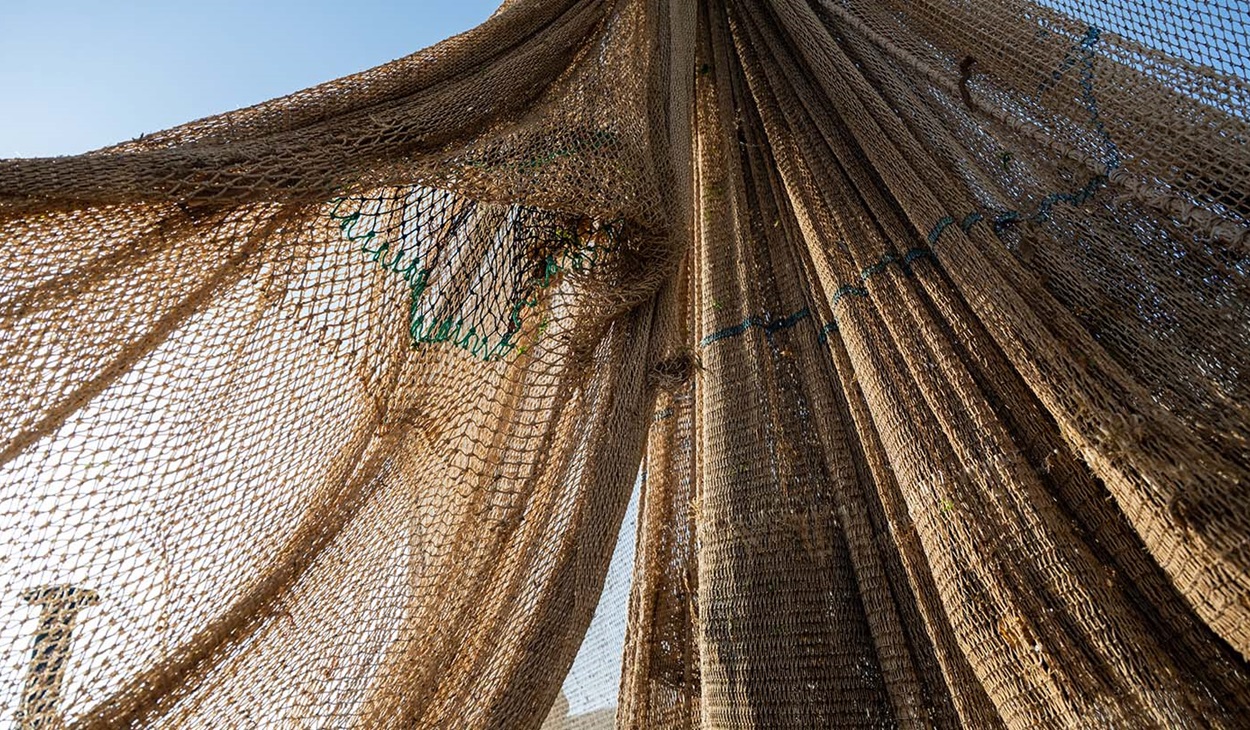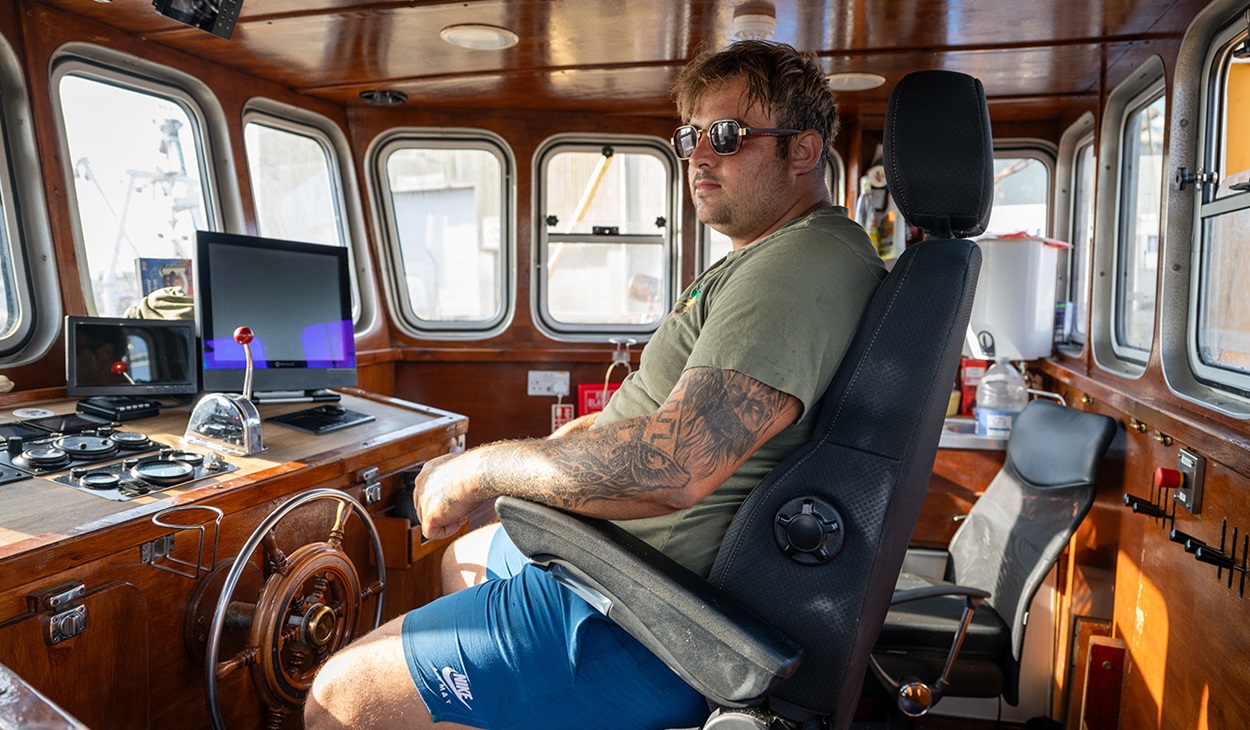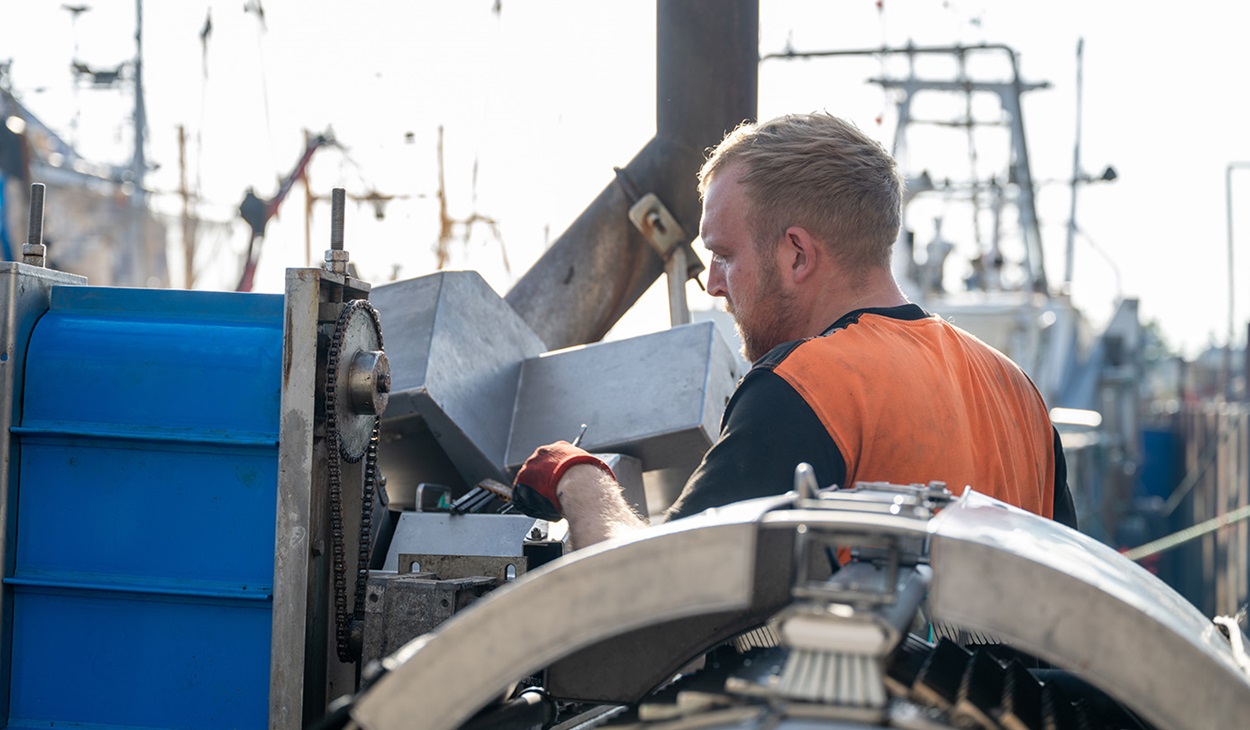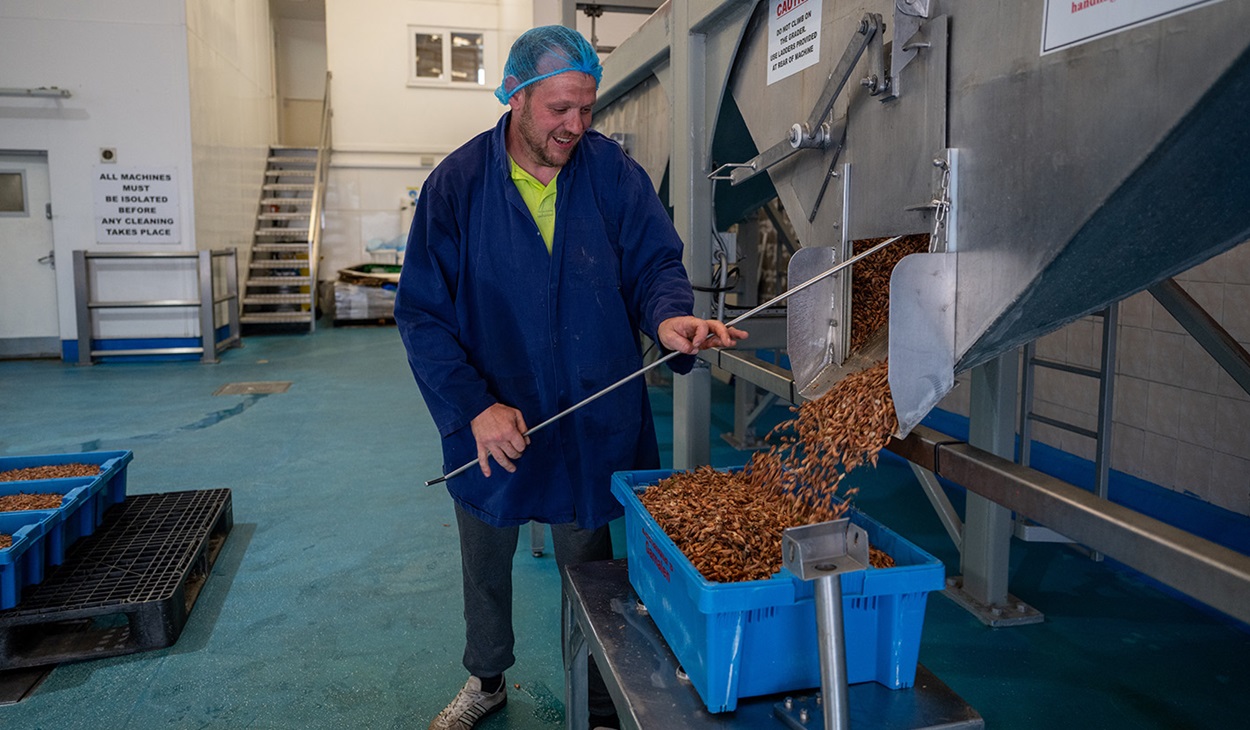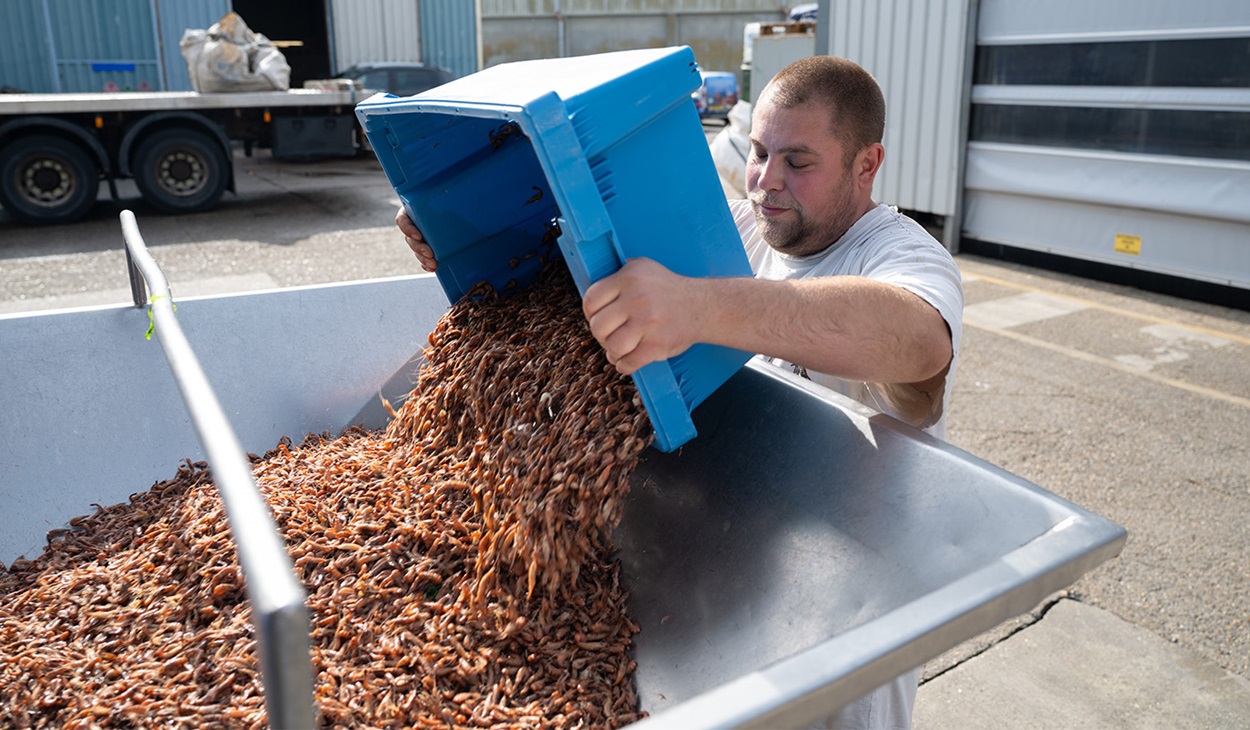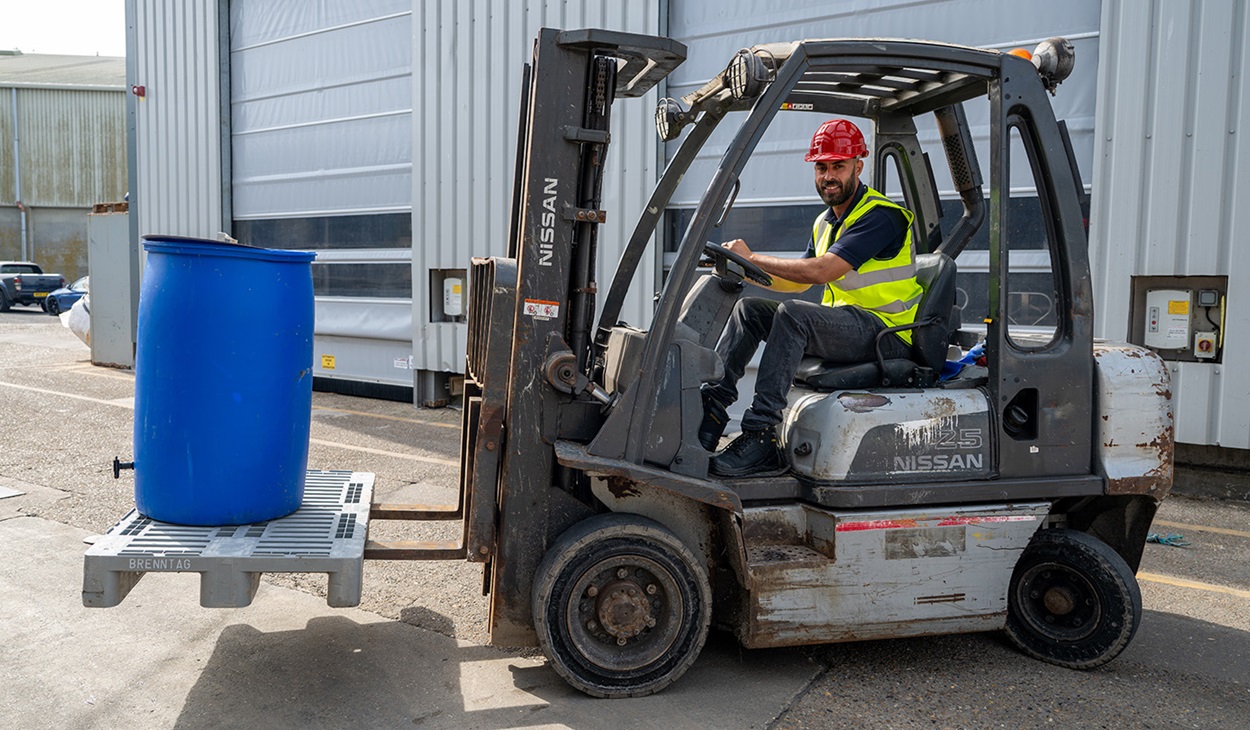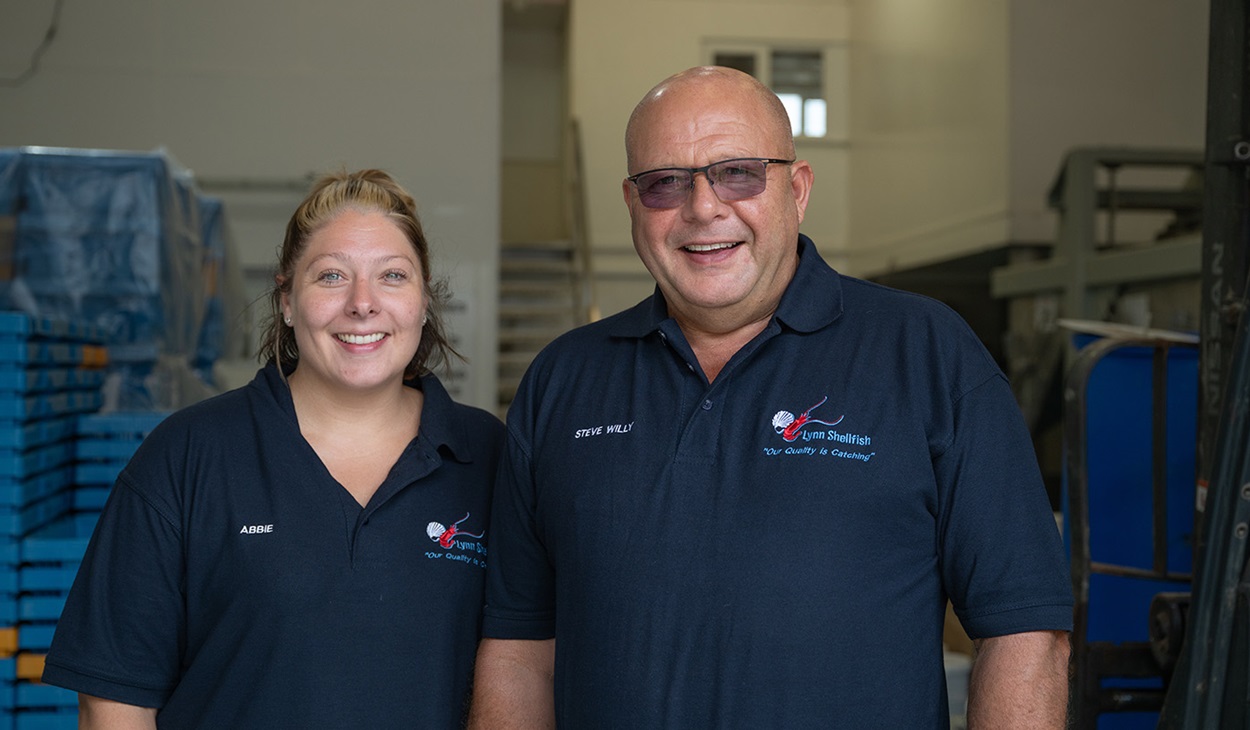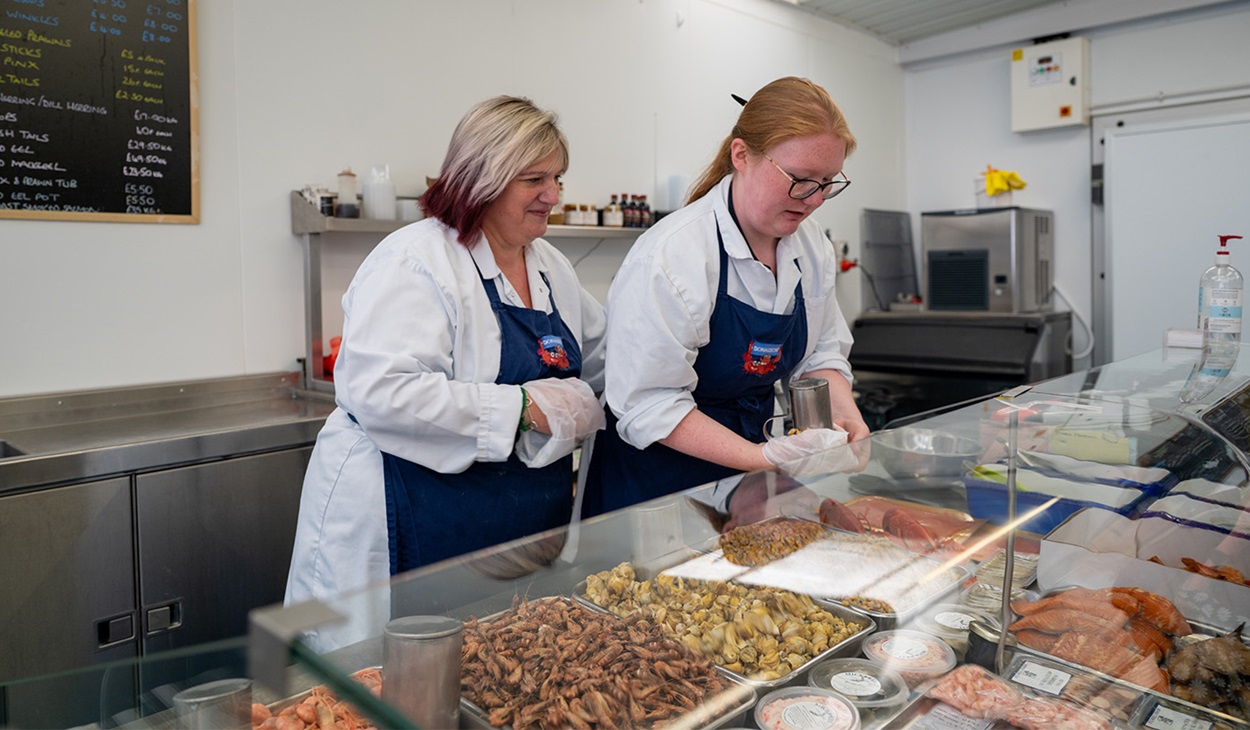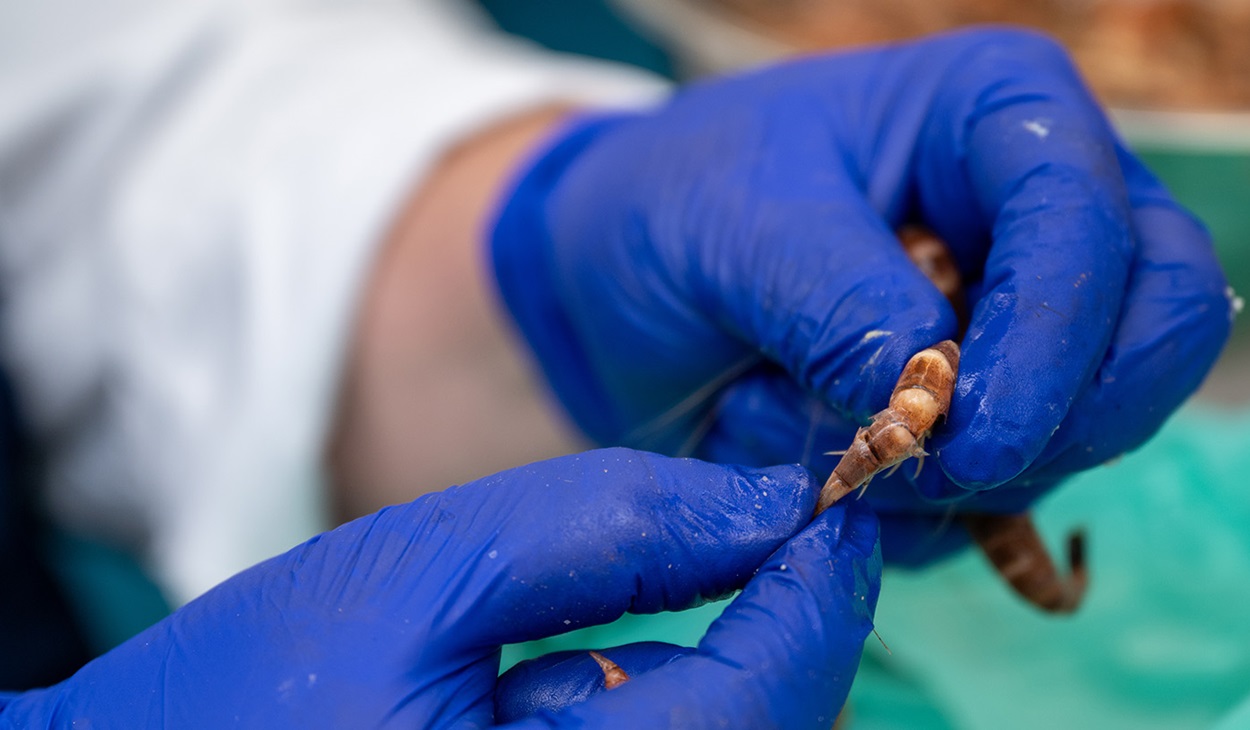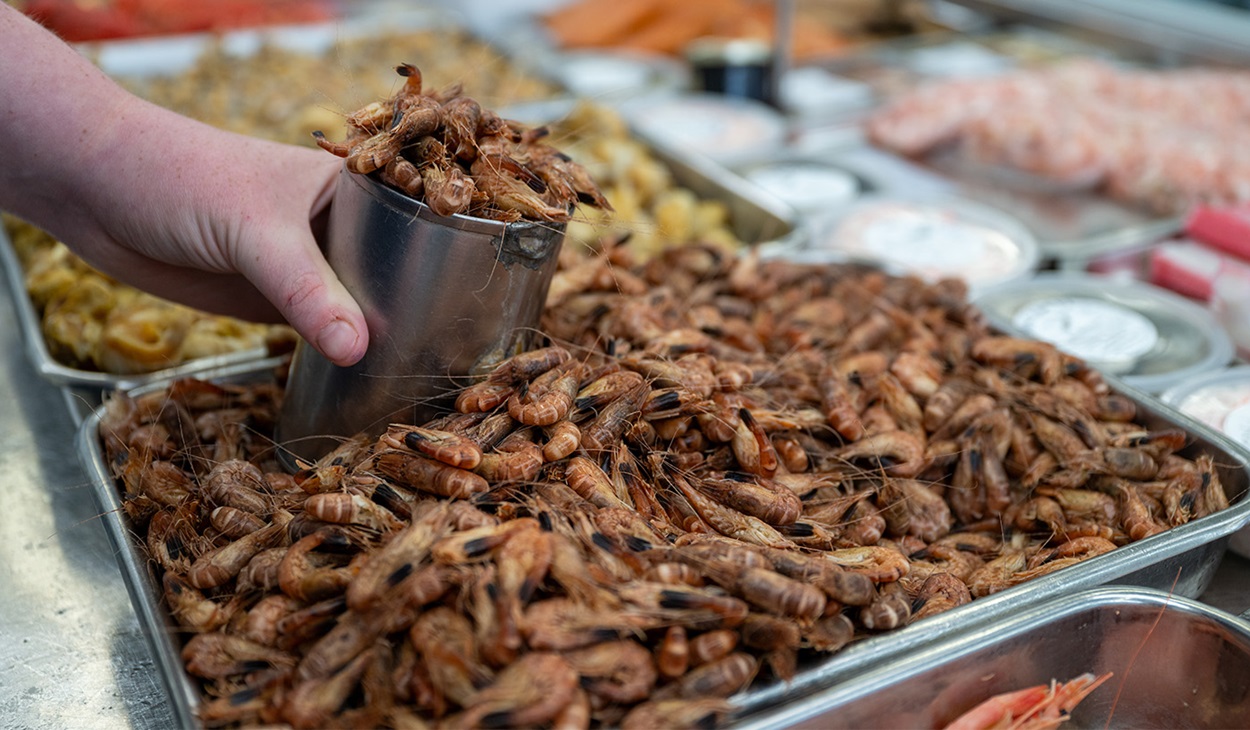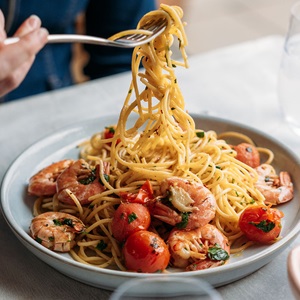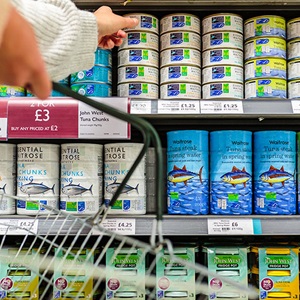When Sarah first stepped into Donaldsons Fishmongers in King’s Lynn at the age of 13 as a Saturday girl, she never imagined she would still be there nearly four decades later.
Now 51, she smiles: “I’ve grown up with this place.”
The Donaldsons name has been part of King’s Lynn for over a century. For the past 39 years, it has been run by the Williamson family, after Steven Williamson bought it from the original Mr. Donaldson, whose family had managed it for generations.
Though the shop has moved location a couple of times, Donaldsons remains proudly independent. Alongside tuna and swordfish from distant waters, the heart of its trade is shellfish sourced as close to home as possible. For Sarah, that makes the Wash Brown Shrimp fishery indispensable.
“Local people want their own, and we’re proud to provide it. You don’t get brown shrimp like ours anywhere else.”
.tmb-large1920.jpg?Status=Master&Culture=en-GB&sfvrsn=4db9431b_1)
Sarah Marsh
Even though most local customers already know the story of the shrimp, Sarah still takes pride in explaining it to visitors: how the boats work with the tides, and when to watch the landings.
“People like knowing where their food comes from,” she says. “It builds trust.”
That trust extends to her relationship with the fishermen, many of whom come from families that have been fishing for generations.
Beyond trust, Sarah finds joy in her work. She calls peeling shrimp her 'therapy.'
“I could sit and peel all day while chatting with customers. The only problem is supply and demand - as soon as I peel them, they’re gone.”
Locals enjoy the shrimps in salads, potted in butter, or simply with bread and vinegar. From children to people in their 90s, the tradition crosses generations. Donaldsons also sells dressed crabs, quiches, and shrimp tarts, keeping variety on the counter.
That sense of family runs through the wider fishing community too. Sarah’s goddaughter, Abbie Williamson, is Manager at Lynn Shellfish, one of two shellfish processors in King’s Lynn alongside John Lake Shellfish Ltd. Abbie oversees health and safety, exports, and communication with fishermen. Like Sarah, she started young, making boxes in the factory at 12. She has now been the manager for six years.
King’s Lynn’s shellfish trade is small but tightly knit. “Everyone knows each other, and that makes things run smoothly,” Abbie says. All employees at Lynn Shellfish are local, and the business often involves several generations of the same family. On the boats, it is common to see fathers and sons, uncles and cousins working together.
“We operate more like a family than a business,” says Abbie’s colleague, Hassan Choutaoui, who has worked at Lynn Shellfish for 12 years after moving to the UK from Morocco and is now Transport and Operations Manager.
“Everyone helps each other - when boats land, the staff help unload. We spend so much time here it’s almost like living together. Of course, there are ups and downs, but no one wants to leave. We’re all very committed.”
Yet, both Abbie and Hassan acknowledge challenges. Fewer young people are entering the fishing industry, deterred by the growing demands of qualifications, medicals, and certificates required.
“It puts pressure on new entrants,” Abbie says.
Local employment remains essential to the operation of the business, as Hassan explains: “99% of our skippers and crew live within 10-15 minutes of King’s Lynn. If you lose crew for even a couple of days, you lose profit and targets.”
Brown Shrimp can be fished year-round, but at the start of August, boats typically make 12-hour trips, sailing with the tide and catching shrimp in deeper waters. In the autumn and winter, trips are shorter, with shrimp being fished closer to King’s Lynn. Shrimps are caught in nets before being hauled in, cooked on board the vessel and landed directly into clean plastic pallets and sent straight for processing.
“We process 99.5% of the catch immediately - grading into three different sizes - then ship to market.”
That market lies mostly abroad. Holland is the key buyer, distributing shrimps across Europe. Around 95% of Wash brown shrimp still goes there, much of it shipped to Morocco for peeling before being packed and sold on to supermarkets.
“Sadly, there isn’t much of a market for brown shrimp in the UK,” says David Guy, Secretary and Data Coordinator for the Wash Brown Shrimp MSC Project. “Most shellfish is exported, often processed abroad, and then sometimes re-imported. It seems crazy, but it reflects the fact that UK consumers prefer convenience foods like pre-peeled prawns, and fish consumption generally is lower here than in other countries.”
David has been involved since the project’s inception, helping to manage data, communications, and audits for the fishery’s certification. Most of his time is spent coordinating with processors, and stakeholders like Natural England, Inshore Fisheries and Conservation Authority (IFCA), Marine Management Organisation (MMO), and Seafish.
In King’s Lynn and other nearby Norfolk towns, however, demand is strong. Brown shrimp remains a local favourite, eaten in sandwiches, salads, or tarts. Yet beyond the town, its appeal is limited.
“In London, for example, you rarely see shrimp on the menu,” notes Steven Williamson, Managing Director of Lynn Shellfish, and Abbie’s father.
Steven adds that brown shrimp is often seen as an ‘older generation’ product, as they are more willing to peel them. Younger consumers lean towards cheaper, ready-to-eat supermarket prawns.
Abbie believes change must come through food culture. “To get shrimp onto more plates in the UK, there needs to be a push with recipes, and chefs need to get involved. It has to come through restaurants, not just selling the product as it is.”
The industry has also undergone a cultural shift. In the past, unwanted catch was often discarded overboard. Now, everything is properly landed and disposed of, and fishermen are more focused on quality.
“When I first started fishing in the 1970s and ’80s, quality wasn’t considered as much. Now, poor-quality product simply won’t sell - you have to land the best you can,” David says.
The certification process was daunting at first. Some fishermen were sceptical, unsure why it mattered. But the reality soon became clear: without certification, there would be no market. Over time, most accepted its importance.
“Fishermen are practical people. They want evidence that sustainability measures actually work. MSC provides that evidence, which helps build their trust. Without results, fishermen lose interest. With MSC, they can see the benefits directly in their markets.”
.tmb-large1920.jpg?Status=Master&Culture=en-GB&sfvrsn=482081ea_1)
Almost all vessels now have satellite tracking, and landings are meticulously recorded by the processors - including fishing days, hours at sea, and graded product weights. This data is fed into reports for the MSC group and auditors.
“Success is a fishery that continues long into the future, does not damage marine protected areas, and remains sustainable,” says Luke Godwin, Assistant Chief Officer at IFCA. “The way we work with fishermen through the working group shows that cooperation. They understand the importance of not damaging habitats as well.”
Eastern IFCA manages inshore fisheries across Lincolnshire, Norfolk, and Suffolk, with shrimp as a key fishery, managed through closed areas, annual trip limits, gear restrictions, and close collaboration with fishermen. Stock sustainability is overseen by accreditation, and IFCA’s goal is a long-term sustainable fishery that operates within environmental limits while protecting sensitive habitats.
Looking back, David reflects on how far the sustainable fishing in seafood community in King’s Lynn has come.
“It’s been a long and sometimes tough journey. At the start, the process felt overwhelming. But by breaking it down and working with supportive partners, we made it achievable.”

